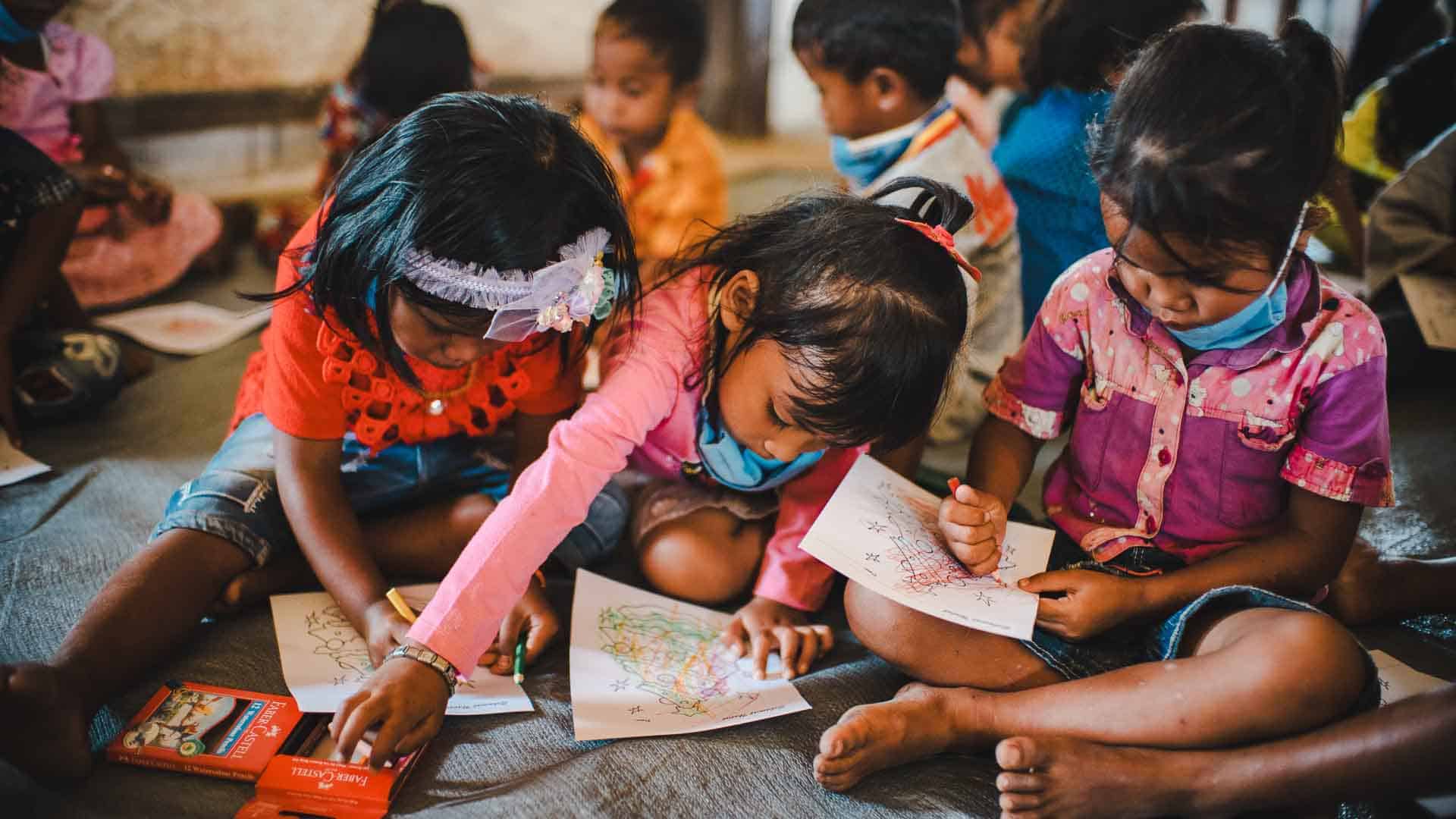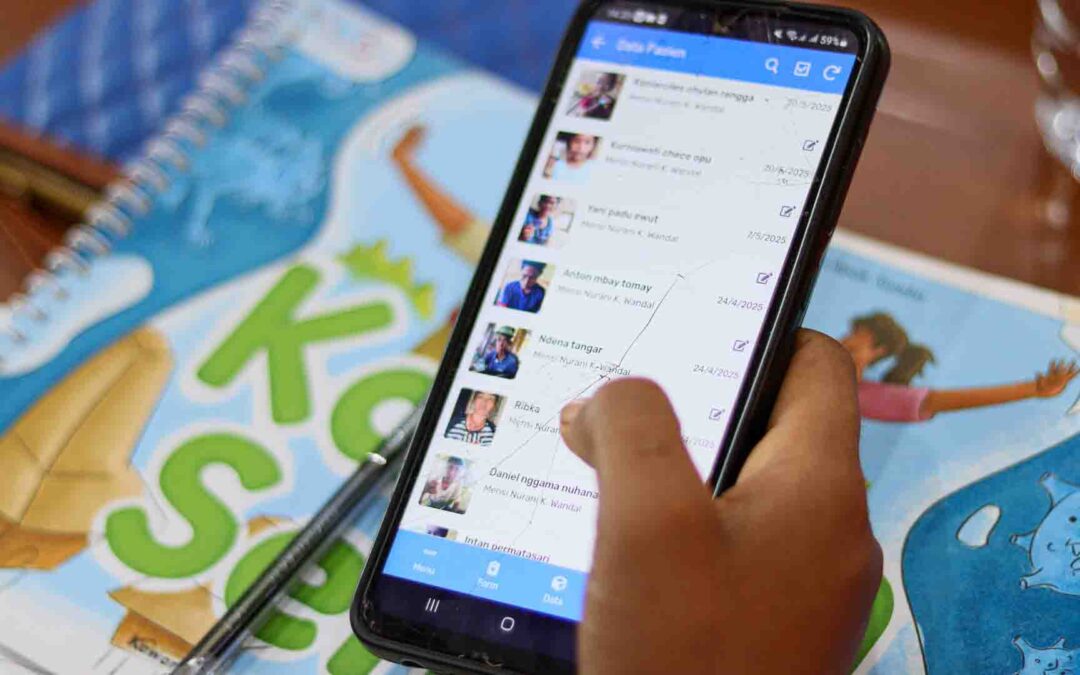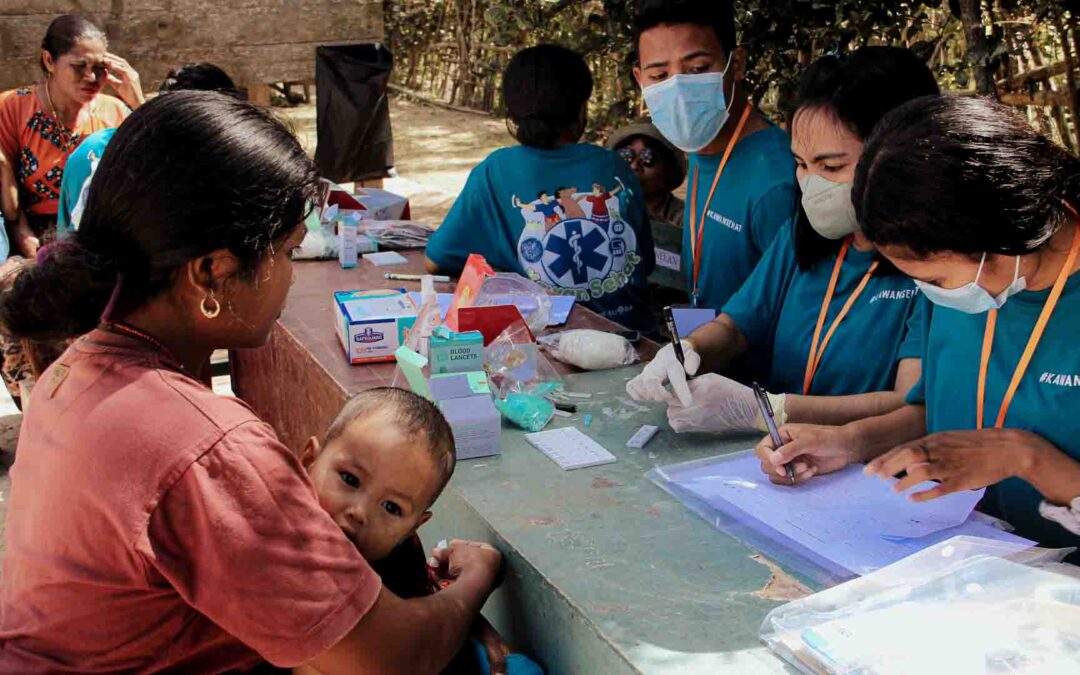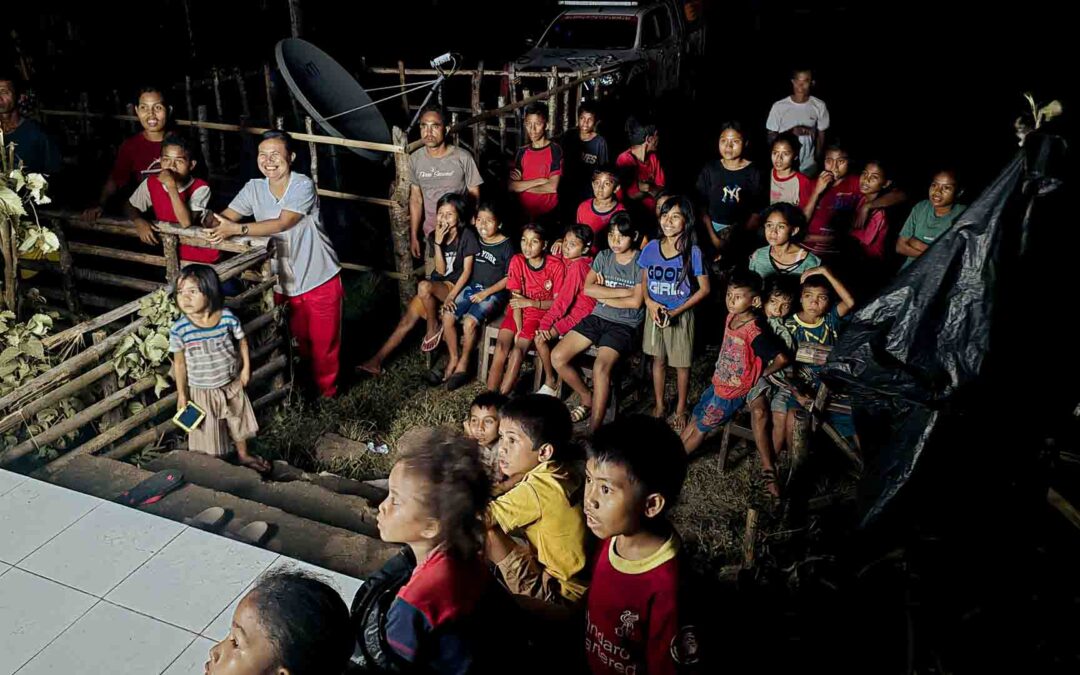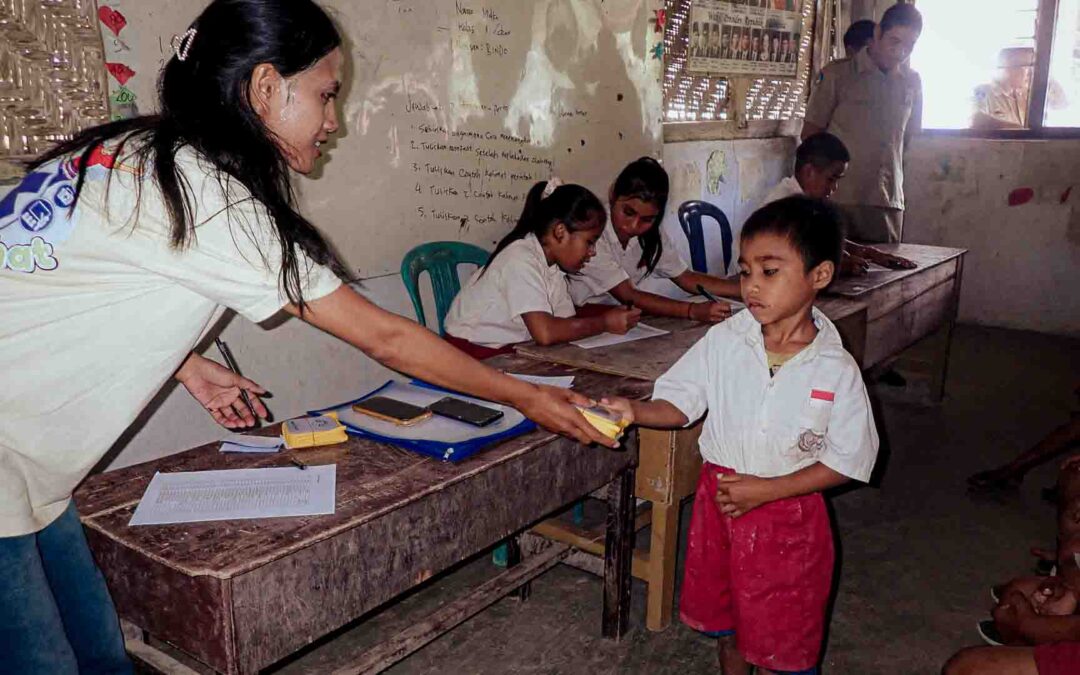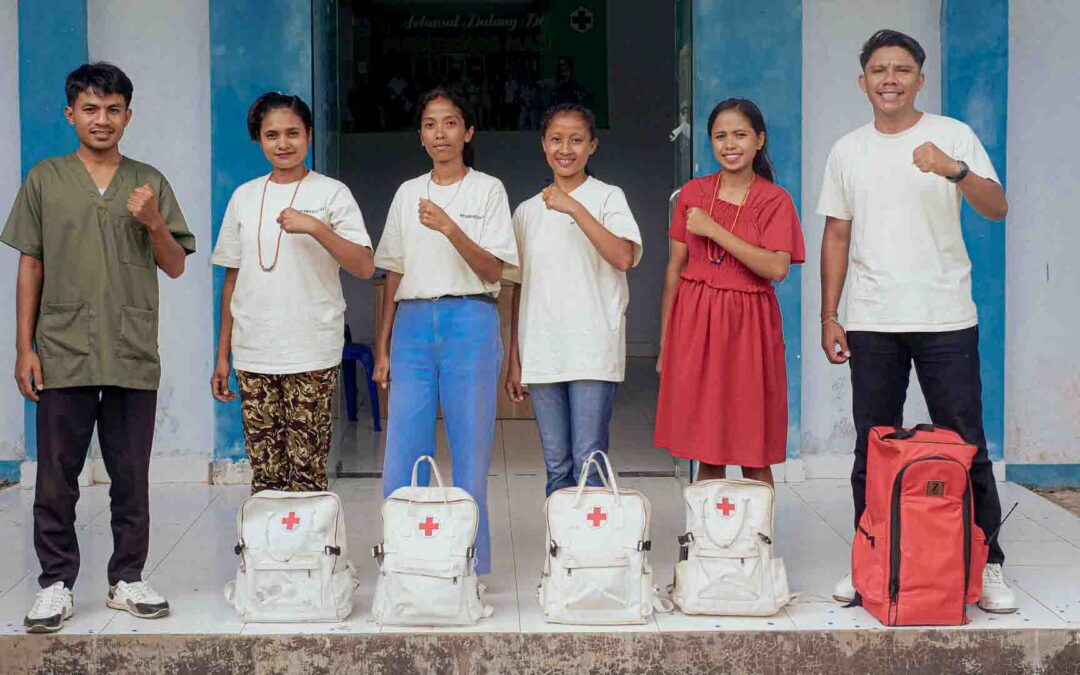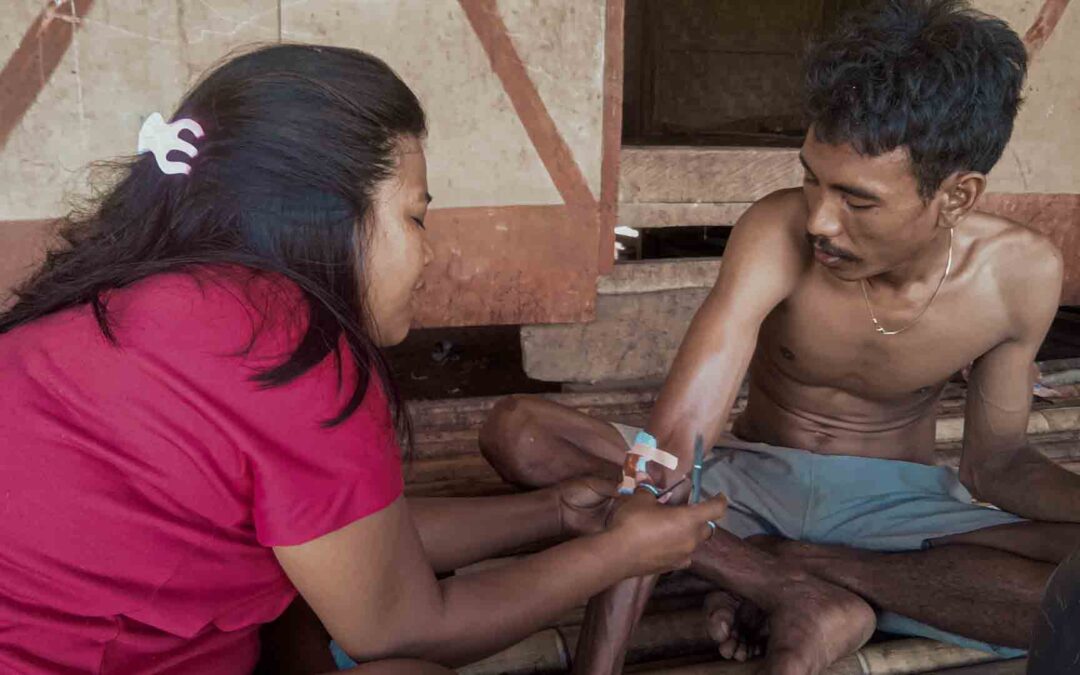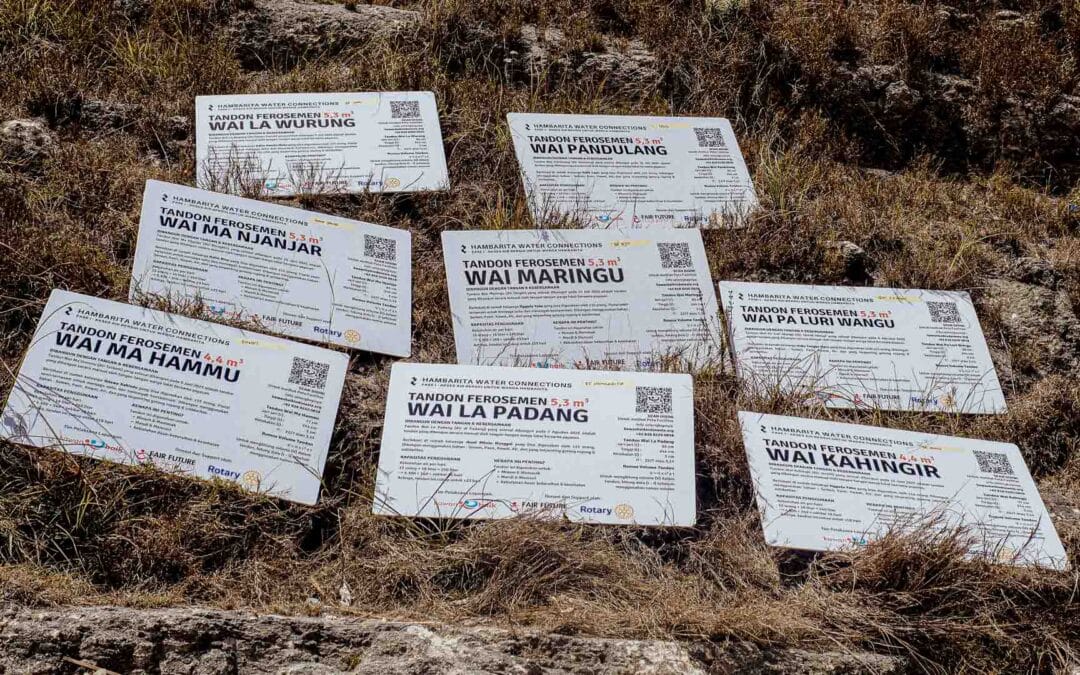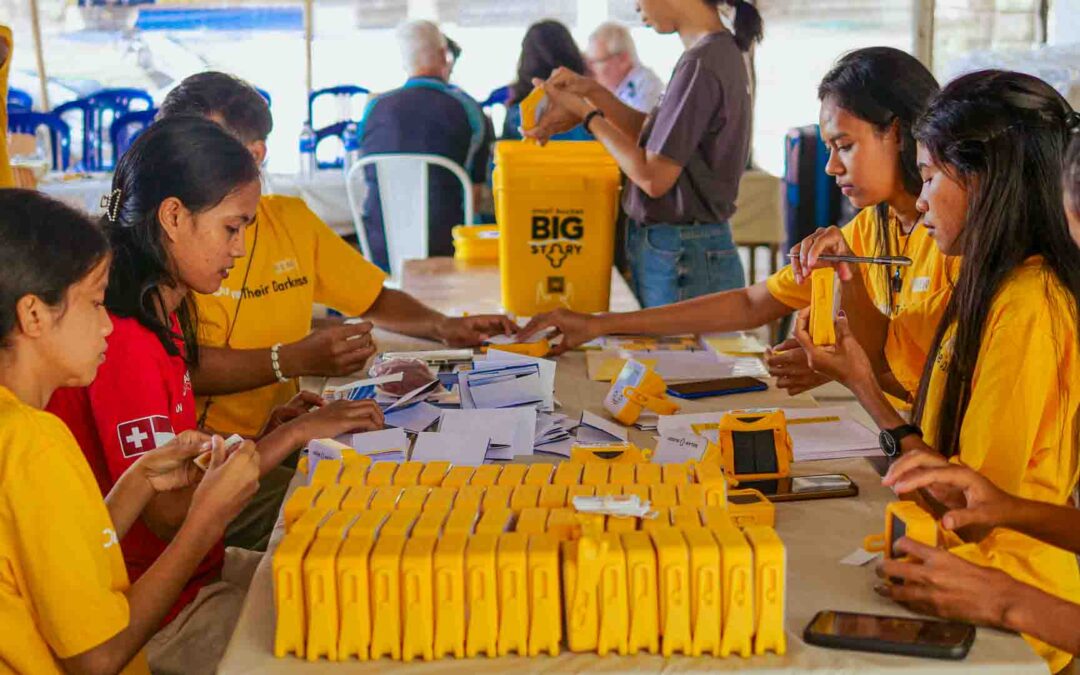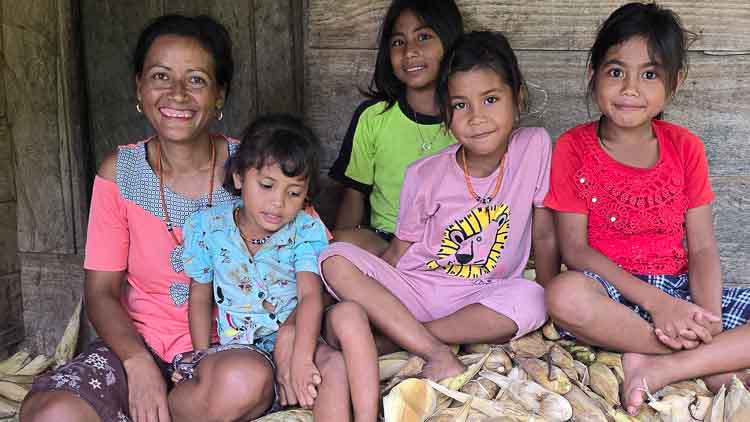In the remote areas of East Indonesia, schools play a vital role that extends beyond education; they function as a protective shield for the community. Every lesson taught is not just centred on academic progress but also serves as a means of care, safety, and disease prevention for children and their families.
In Remote Indonesian Villages, Education Is the First and Strongest Form of Medical Prevention
This new Photo of the Day features children learning through drawing at the Mbinudita school in East Sumba.
They are focused, joyful, and safe. This image transcends colour and paper; it reflects a simple truth we encounter daily in the villages where we work: education is the first step towards health.
This school, which we built in 2019 and 2020 amid the COVID pandemic, following the collapse of the original bamboo and earth structure just days before Christmas, now welcomes more than 120 children. It is no longer just a school; it represents protection, access, and a highly symbolic action and place for the entire Mbinudita region.
When children are at school, they no longer walk miles alone to fetch dirty water from distant streams. They are not exposed to perilous trails, venomous snakes, heatstroke, exhaustion, or injury. According to the World Health Organisation, safe water, sanitation, and hygiene (WASH) practices are essential for promoting overall health and preventing waterborne diseases.
They learn how to avoid illness before it strikes: how to wash their hands, improve their diets, protect themselves from disease, and adopt a healthier mindset. Studies show that integrating health education into schools can significantly reduce the prevalence of preventable diseases by encouraging healthier lifestyles.
- Every drawing is not just an act of creativity; it’s a source of knowledge.
- Every lesson mitigates risk.
- Every school day serves as a tool for medical prevention.
Because here, in ultra-rural Indonesia, the education system is struggling. Teachers walk 15 kilometres for ten dollars a month, when they do get paid. Children arrive without shoes, books, or even chairs.
That’s why, at Fair Future and Kawan Baik Indonesia, we are here not just to build schools, but to equip them with what matters most: dignity, learning, and care. Through prevention campaigns, games, health supplies, and stories, we educate children, especially their parents, to lead healthier lives.
It’s not just about avoiding malaria or dysentery. Research indicates that education plays a crucial role in promoting better health by empowering individuals to make informed decisions about food, hygiene, and environmentally friendly practices. It’s about changing the way an entire generation thinks about water, nutrition, hygiene, and safety.
Education, here, is the first treatment.
It’ s the first prevention.
And that’ s our starting point.
This photo illustrates that promise. A pencil, a page, and a child’s hand: a different future.
Alex Wettstein – Fair Future Foundation medico-social camp in East Sumba – Rumah Kambera, Lambanapu – May the 1st, 2025
External Links
List of Related Organizations with Hyperlinks
- UNICEF: Works globally to protect children’s rights, including access to education and health, just like Fair Future’s work in isolated Indonesian regions.
- WaterAid: Specialises in WASH access. Fair Future shares its mission of linking safe water access with health education in schools.
- Save the Children: Promotes children’s rights and education in remote areas, similar to Fair Future’s work in East Indonesia.
- Room to Read: Focuses on literacy and girls’ education in Asia and Africa, echoing Fair Future’s classroom health efforts.
- Global Partnership for Education: Supports education in fragile countries, closely aligned with Fair Future’s rural empowerment goals.
- Plan International Advances children’s health and education, with work in rural and marginalised regions, such as Fair Future.
- Educate A Child: Partners with NGOS to bring learning to out-of-school children, aligned with Fair Future’s school-building work.



